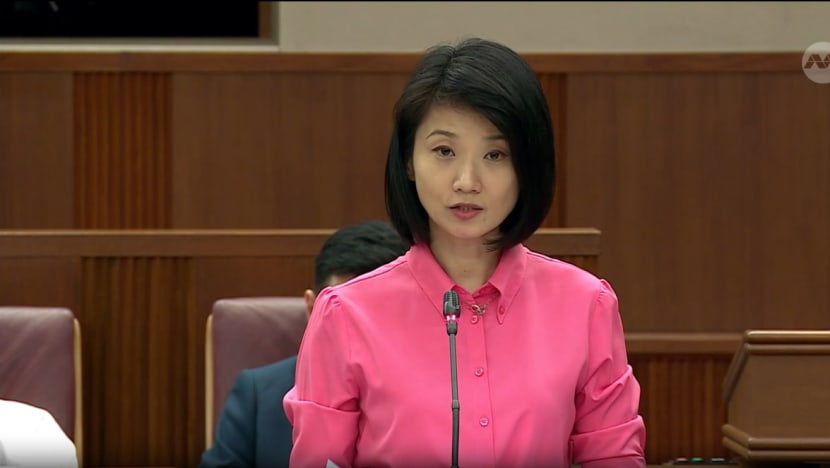Tech platforms responding with ‘varying degrees of urgency’ to police’s requests on scams: Sun Xueling
For example, Meta has “on some occasions required more time” to recover compromised WhatsApp accounts that are used for scams, says Minister of State for Home Affairs Sun Xueling.

Minister of State for Home Affairs Sun Xueling speaking in parliament on Jan 10, 2024.

This audio is generated by an AI tool.
SINGAPORE: The government is working with technology giants to tackle a new phishing scam that uses fake WhatsApp Web websites, but these platforms have “responded with varying degrees of urgency”, said Minister of State for Home Affairs Sun Xueling on Wednesday (Jan 10).
For example, the Singapore Police Force (SPF) is working with Meta, which owns WhatsApp, to stop further abuse of compromised WhatsApp accounts as soon as they are detected. But Meta has “on some occasions required more time” to recover these compromised accounts, Ms Sun said.
“We intend to work even closer with Meta and to highlight to them that we need them to do more,” she added. “They need to respond more quickly to our requests, to be more effective and efficient in recovering compromised WhatsApp accounts and disabling the service if it is part of a scam.”
The police are also working with online platforms, including Google, to introduce stronger safeguards to mitigate the risk of fraudulent takeover of online messaging accounts, such as through the pre-emptive detection and blocking of URLs linked to phishing websites.
Singapore police have been working with tech giant Meta to address a recent phishing scam involving fake WhatsApp Web websites, to stop compromised accounts from being further abused as soon as they are detected. The police are also working with online platforms including Google to introduce stronger safeguards to mitigate the risks of online messaging accounts being taken over by scammers, such as by pre-emptively detecting and blocking URLs linked to phishing websites. Minister of State for Home Affairs Sun Xueling said this in Parliament on Wednesday (Jan 10) in answer to an MP's question. However, she added that platforms have “responded with varying degrees of urgency”. Ms Sun said the Online Criminal Harms Act, which comes into force in the first quarter of 2024, will give the Government more levers such as issuing directions against scams and requiring designated providers to detect and minimise malicious cyber activities.
“This is something that requires technical work … on Google’s end,” said Ms Sun.
“We are highlighting the scam variants to them so they can take better care and look at how their search engines can be better optimised to prevent such scam variants from taking place on their platforms,” she said in response to a question from Member of Parliament Wan Rizal (PAP-Jalan Besar) in parliament.
Dr Wan Rizal had asked about the anti-scam measures taken after at least 237 people lost S$606,000 to social media impersonation scams since November, as stated in a police advisory issued on Nov 13, 2023,
In particular, at least 93 people have fallen prey to the WhatsApp scam variant, with losses amounting to at least S$176,000.
In this latest scam variant, victims would be tricked into giving up access to their WhatsApp accounts by clicking and scanning the QR code on fake “WhatsApp Web” phishing websites.
Scammers would then use the compromised WhatsApp account to reach out to the user’s family and friends, and convince them to transfer monies to the scammers’ bank accounts or PayNow numbers.
Ms Sun said the government will continue to engage the online platforms “since they are key vectors for the propagation of scams”.
In addition, the Online Criminal Harms Act, which will be progressively rolled out from this quarter, will allow the government to direct online messaging platforms to disable access to accounts suspected to be involved in scams.
The government can also require designated online service providers to introduce upstream measures to safeguard against the misuse of online accounts, said Ms Sun.
















